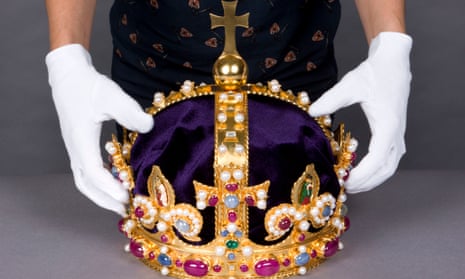The cosmetic similarities between Game of Thrones and Wolf Hall are not hard to list. Both occupy a similar period in history, soon after the fall of the Plantagenet kings (recast as the Targaryens in GoT) and the early history of the dynasty that succeeded them. Both wallow in the power plays of courtly intrigue and its brutal consequences, from the Blood Wedding of fantasy, to the endless beheadings of history. And both have dominated the recent consciousness of storytelling.
The differences are also quite clear. There are no dragons, dire wolves, blood magic, white walkers or talking tree roots in Wolf Hall, while GoT wanders rather drastically from the history and geography from which its fantasy is spun. Wolf Hall is crafted as a tight internal monologue that never takes us beyond the perceptions of its protagonist Thomas Cromwell, while GoT moves the reader from one point of view to another in a rather more workmanlike style. These are differences of emphasis: one is designed to play to mass audiences attuned to televisual storytelling, the other for audiences who value emotional depth above narrative lucidity.
The dramatic question at the heart of each story is, nonetheless, identical: Who rules and why? What makes a just monarch? Both stories set their audience the same conundrum. A society dominated by great families and inherited wealth, representing a history where the most greedy, the most deluded, and the most violent have tended to triumph, leaving a world riven by corruption and injustice. We’re always hungry for stories that reflect the dynamics of power because we are never free of them, but it seems more than coincidence that GoT and Wolf Hall have risen to popularity in a period of modern history where the super-rich have reclaimed much of their old power.
GoT’s answer to this age-old problem is in the tradition of most popular fantasy from King Arthur to Lord of the Rings – to achieve a just world, a just king must rule. Or more accurately, a just queen. Thundering up from the fiery end of the fantasy map in this Song of Ice and Fire is Daenerys Targaryen, Mother of Dragons, in every sense the most just candidate for the Iron Throne, with a trio of dragons on hand to incinerate any lords who oppose her. And she’s liberating every slave, whore, eunuch or other downtrodden soul along the way to demonstrate just how just good a ruler she can be. If ever a character has represented the ideal of a Social Justice Warrior, Daenerys Targaryen is she.
Wolf Hall’s challenge to social privilege is slightly more radical. Thomas Cromwell is no king in waiting. His story foreshadows the rise of the power that would truly threaten the ruling aristocracy – the modern democratic state. It is the state that will rein in the power of the rich, transform taxation from robbery to redistribution and enfranchise women and the poor with the vote. If Thomas Cromwell resonates as a modern-day hero, it is because we sense once again the need for strong democratic statesmen.
How will these two stories of our time end? History certainly suggests that Cromwell’s will not end well - though Wolf Hall has already ventured close to alternate history in its characterisations (as Thomas More apologists would tell you). Imagine the possibilities if she were to take that further in the third volume. George RR Martin has certainly shown himself more than happy to brutally murder even his story’s most empathetic characters. Daenerys may end not on the Iron Throne but in the basement of the Bastard of Bolton. A nasty climax to a fantasy story, but not such a long way from reality.

Comments (…)
Sign in or create your Guardian account to join the discussion